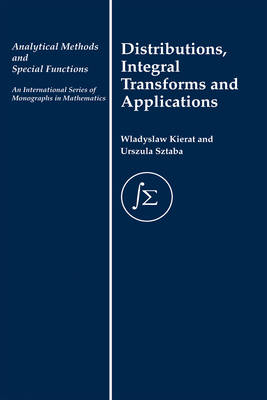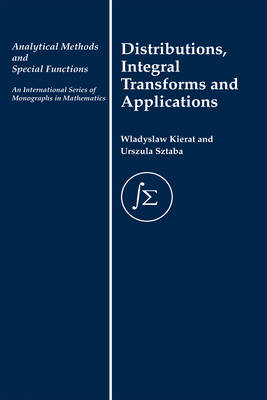
- Afhalen na 1 uur in een winkel met voorraad
- Gratis thuislevering in België vanaf € 30
- Ruim aanbod met 7 miljoen producten
- Afhalen na 1 uur in een winkel met voorraad
- Gratis thuislevering in België vanaf € 30
- Ruim aanbod met 7 miljoen producten
Zoeken
€ 137,45
+ 274 punten
Uitvoering
Omschrijving
In this approachable introduction to the topic, Distribution, Integral Transforms and Applications makes clear the theory of distributions and integral transforms, exploring the general theory, examples and applications. The authors emphasize the remarkable connection between distribution theory and the classical theory and analysis of differential equations. First they explain the theory of the Lebesque integral as a fundamental tool in the proofs of many theorems. They also give practical hints on using the theory of distributions when classical analysis is insufficient. The text is designed for graduate students and researchers in applied mathematics, engineering, and related disciplines.
Specificaties
Betrokkenen
- Auteur(s):
- Uitgeverij:
Inhoud
- Aantal bladzijden:
- 158
- Taal:
- Engels
- Reeks:
Eigenschappen
- Productcode (EAN):
- 9780367395551
- Verschijningsdatum:
- 23/09/2019
- Uitvoering:
- Paperback
- Formaat:
- Trade paperback (VS)
- Afmetingen:
- 175 mm x 251 mm
- Gewicht:
- 272 g

Alleen bij Standaard Boekhandel
+ 274 punten op je klantenkaart van Standaard Boekhandel
Beoordelingen
We publiceren alleen reviews die voldoen aan de voorwaarden voor reviews. Bekijk onze voorwaarden voor reviews.







